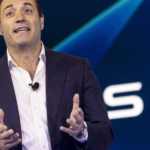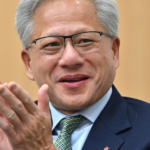Gen Z will actually comprise one in 10 managers in 2025, which Zhao notes is a similar trajectory to past generations. “Gen Z is entering management at the same rates that millennials and other generations did” in recent decades, he said. In other words, Gen Z may say they’re consciously unbossing, but they seem just as into managerial monogamy, so to speak, as any other generation that came before them.
Despite the “unbossing” rhetoric, Glassdoor’s Zhao finds Gen Z is achieving managerial status right on schedule. In fact, he added Gen Z is likely to surpass baby boomers in management ranks by late 2025 or 2026 if current trends continue.
Zhao notes climbing into management remains one of the most effective shortcuts to boosting pay and accelerating career growth. In 2025, workers transitioning from individual contributor roles to management positions saw an average salary increase of 11%—significantly higher than the 7% raise secured by peers who remained individual contributors. For all the talk about dismantling hierarchies, Gen Z seems to be voting with their feet, understanding that material benefits are associated with management.
So what happens when the “conscious unbossing” generation becomes the boss? That’s where the narrative runs into headwinds. While employees overwhelmingly say “emotional intelligence” is a requirement from their managers, Zhao’s data—and collection of anecdotal evidence—shows that employees’ lived experiences are less transformational.
Simply put, burnout is surging: Mentions of burnout in workplace reviews spiked 73% year-over-year as of May 2025. And access to benefits that could reduce burnout, such as flexible scheduling or mental-health care, have stagnated or even declined this year; for example, access to reduced or flexible hours fell 2.2% year-over-year, and work-from-home by 1.7%. Still, since 2019, the work-from-home benefits are up a whopping 20.4% and mental health by 17.9%.
Zhao notes these support systems aren’t expanding at the rate workers might hope, even as the overall focus on holistic wellbeing supposedly increases. Instead, companies are more likely to be investing in benefits like health savings accounts or fertility assistance—positive, but perhaps less directly tied to the emotional facets of work that Gen Z managers are assumed to advocate for. Zhao told Fortune Intelligence in an interview that he’s surprised in some sense that “things haven’t necessarily deteriorated” for workers since January, but they “still don’t feel like they’re in a great situation.” At least things don’t seem to have gotten worse, he added.
The data paints a complex picture. Gen Z is making undeniable inroads into management and is perceived as being poised to prioritize wellbeing and flexibility. However, the pace of real change on issues like workplace flexibility and burnout remains slow. In practice, rising managers of all generations—including Gen Z—face inherited constraints: economic uncertainty, budget pressures, and the inertia of long-standing workplace norms.
The upshot? Gen Z may want to “unboss” the workplace, but the traditional levers of career advancement remain intact. “Management is not for everybody and that’s okay,” Zhao said about what his data shows, “but it is still seen as the best path for climbing the career ladder.” For better or worse.
For this story, Fortune used generative AI to help with an initial draft. An editor verified the accuracy of the information before publishing.









